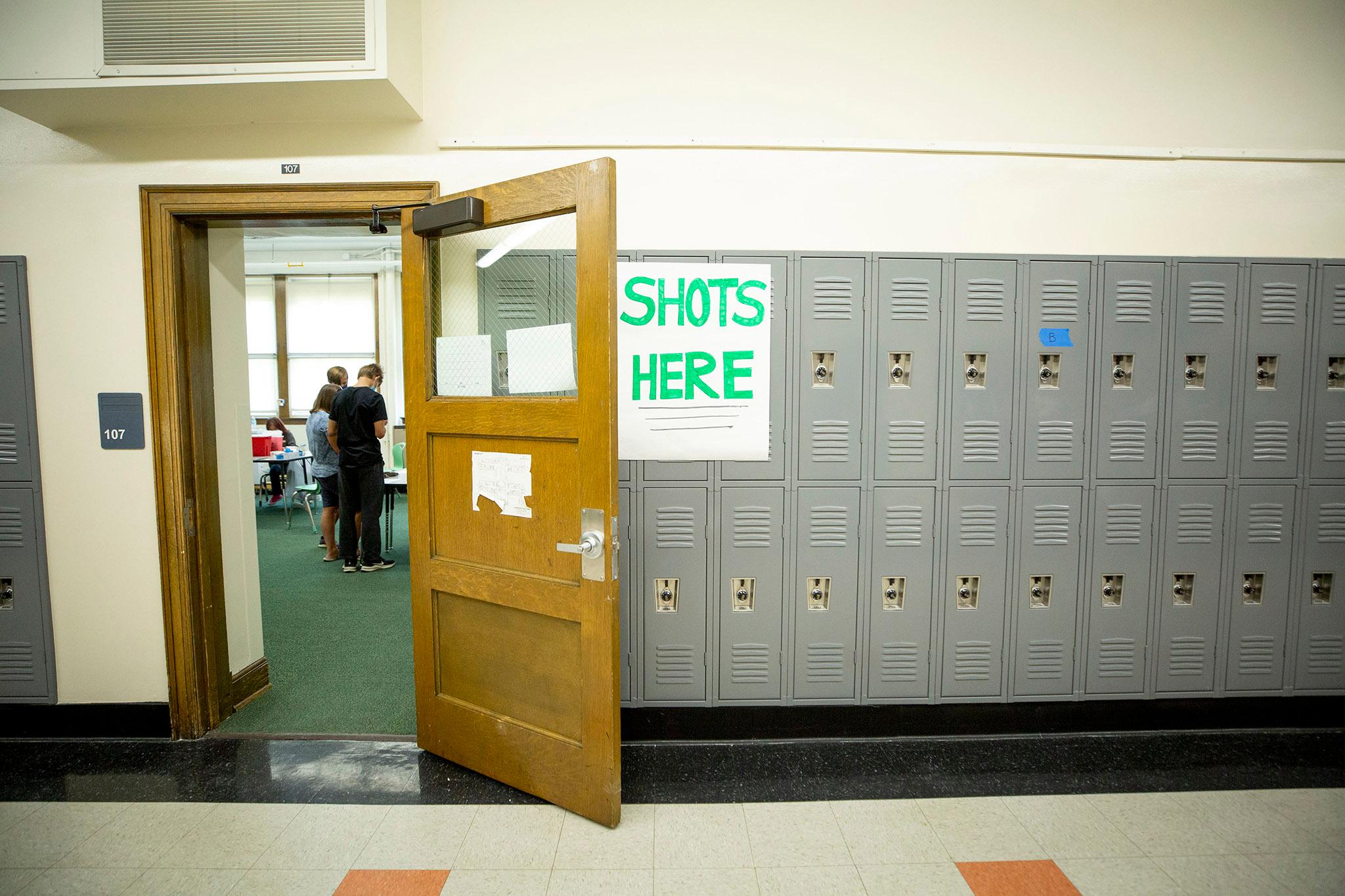
Measles is making a comeback globally and in the U.S. And not enough Coloradans, especially youngsters, are vaccinated against it to prevent it from hitting the state with a vengeance.
“We're an accident waiting to happen,” said Susan Lontine, executive director of Immunize Colorado, which works to protect Coloradans from vaccine-preventable diseases. “I mean, we thought we eradicated all these things.”
One big warning sign: Just 88 percent of kindergarteners have gotten the MMR shot which protects against measles, mumps and rubella. That’s according to the latest data from the state health department.
Though that figure is an increase from last year, a percentage above 95 percent is considered ideal to provide community protection.
The numbers are better, nearly 94 percent, when considering all Colorado schoolchildren from pre-k through 12th grade.
Lontine worries the successful vaccination efforts of the last few decades are now taken for granted. “We're kind of a victim of our own success in some ways, but that doesn't mean we should not be vigilant,” said Lontine, a former state lawmaker. “They (members of the public) don't understand how serious it really is.”
Measles outbreaks have shot up nationally this year compared to 2023, according to the federal Centers for Disease Control and Prevention, with cases reported in nearly half of all states. In more than eight in 10 cases, the patient was unvaccinated. Nearly half occurred in kids under age 5.
Families are being urged to get vaccinated.
Measles can cause serious health complications, especially for kids younger than 5 years old. It’s airborne and indoors it can remain in the air you breathe for as long as two hours. If one person has it, as many as 9 out of 10 people nearby will become infected if not protected.
“It can spread like wildfire,” said Heather Roth, immunization branch chief at the Colorado Department of Public Health and Environment. “The general population doesn't understand just how contagious measles can be.”
Measles can cause a rash, high fever — potentially spiking above 104 degrees — cough, runny nose and watery, runny eyes. In the most serious cases, it can lead to respiratory failure and death. One to three out of 1,000 children with measles will die from respiratory and neurological complications, even with the best modern medical care, according to the CDC.
Perhaps most worrisome for Colorado, some pockets, especially in rural and underserved communities, have vaccination rates in the 70s and 60s, well below the so-called herd immunity level.
“There are kindergartens across Colorado in communities that are much lower than that,” Roth said. “If you've got sort of vulnerability like that, it leads communities open to outbreaks.”
Many factors contribute to the situation, including vaccine deserts that overlap with areas where people often don’t have a medical home, access to a primary care provider or pediatrician.
“It's an access barrier, a transportation barrier,” Roth said. “We've got a lot of people that don't trust the health care system. They've not had good experiences in the health care system, so they don't access the health care system and oftentimes don't know what's available to them just in terms of free vaccines, for example.”
Measles can also prove hard to handle for many schools and communities. If an outbreak pops up at a school or child care, kids who aren't protected may need to remain at home for at least 21 days. That undermines both learning and parents’ schedules.
The state and a variety of groups are looking to improve the rates with a multi-pronged approach, including a mobile public health clinic program.
Families can find a free or low-cost vaccine provider by searching a state website. An immunization data dashboard from CDPHE provides data reported annually to the agency by each licensed child care, school or district.
In April, CDPHE sent text and email messages to about 75,000 families whose children may have been overdue for MMR vaccine based on state immunization records. That had an impact, leading to nearly 6,000 vaccinations. CDPHE is mailing around 72,000 reminder postcards this month.
The agency is also now launching a bilingual educational campaign to encourage families to help ensure their kids are “mightier than measles” with the MMR vaccine and other routine childhood vaccines. That website also tells families where they can find free or low-cost vaccines.
Under state law, all students attending a school or licensed child care must receive certain vaccines, including the MMR vaccine, unless an exemption is filed.
For Lontine, a story about her family history resonates deeply.
Her grandfather came from a large ranching family in Montana. His parents had 17 children. On a visit to a cemetery, Lontine found a number of family members who died from an illness that today is preventable with a vaccine.
“I noticed headstones for a lot of my grandfather's siblings, and there were three of them who died around the same time,” she said. “They had all died of whooping cough in the early 1900s. Yeah, we don't want to see that anymore, and we can prevent that.”









